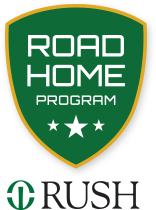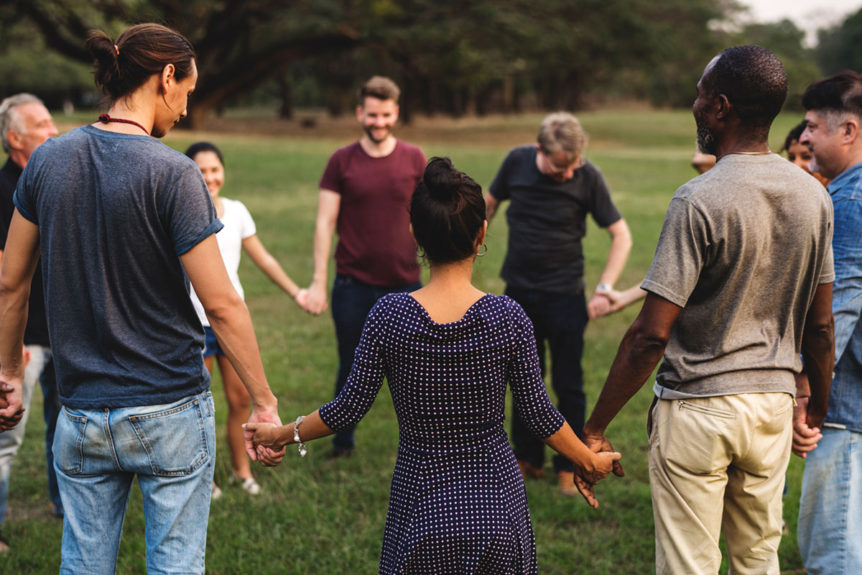Dr. Klassen: When I began my career at the Road Home Program six years ago, I never expected that it would have the reach and impact it now has. Since then, we’ve helped thousands of service members, veterans, and their families with the invisible wounds of war and military service. Because we’re so often focused on meeting our patients’ needs, many of our supporters may not fully understand how Road Home has contributed to a major shift in how PTSD is treated. Outside of Road Home, it’s clear the status quo isn’t working. Even though effective therapies for PTSD exist, many veterans never receive them. If they do, they can take months to show results. We also know that dropout rates for traditional PTSD treatment programs are very high — about 40-60%. By contrast, our dropout rate is just 4%.
Dr. Held: You’re exactly right. A lot of the patients we treat can’t afford to wait months for a treatment approach to be effective. That fact, along with our efforts to remove all possible barriers to care that contribute to veterans avoiding or dropping out of PTSD treatment programs, have guided our research and innovation efforts at Road Home since the beginning.
Dr. Klassen: Our work with intensive outpatient treatment models is showing — quite clearly — that PTSD can be treated effectively in a fraction of the time that traditional approaches require. You’ve played a leading role in designing and studying this treatment model; how would you describe the impression our program is making on the field?
Dr. Held: The intensive delivery of PTSD treatment we have pioneered is extremely promising. Our results are demonstrating that more than 50% of our veterans no longer screen positive for PTSD after only two weeks of treatment, and 75% of them report clinically meaningful reductions in PTSD symptoms. In other words, they report noticing substantial positive changes in their ability to function in their daily lives. What is perhaps most impressive is that we have shown that our veterans are able to maintain the gains they made during a short time period over the long term. This suggests that our veterans learn valuable skills they are able to apply once they return to their home environments.
Dr. Klassen: Many veterans who come to our IOP have lived with PTSD — the nightmares, the anxiety, the inability to relax, the pervasive feeling that life isn’t worth living anymore — for years. I speak for many on our team when I say that, as a clinician, it is immensely satisfying to achieve this kind of lasting progress, especially over a couple of weeks. We know the work we’re doing is literally changing lives, and even more so, it’s shattering conventional assumptions, which have plagued the veteran community for years, that PTSD is untreatable or that it’s no use getting help.
Dr. Held: I think that’s especially true of veterans with complex clinical presentations in addition to PTSD. We’ve proven that groups once considered “tougher to treat,” such as survivors of military sexual trauma or veterans who report hazardous alcohol use, can achieve the same strong outcomes from our program. The brief treatment duration also makes the IOP extremely well suited for time-sensitive issues, such as veterans with PTSD experiencing thoughts of suicide. Our data show the IOP reduces suicidal ideation in a matter of a few days, which has the potential to save lives. Now, an important next step will be making this effective treatment modality more widely available. Given your experience treating veterans and people from all walks of life, where do you think we’re poised to make the greatest impact?
Dr. Klassen: Our success with the veteran population has led to exciting discussions on our team about applying these intensive PTSD treatment models to other groups who might benefit. As dire as the lack of access to effective care is for the veteran community, we know that in some ways, the situation can be even worse for other traumatized populations. [Take] for example, the medical community in the aftermath of COVID-19, or first responders and community members affected by gun violence. Donor support may make it possible to reach these groups, and I’m eager to see what unfolds over the next few years. What do you think the future holds for the Road Home Program and PTSD treatment more generally?
Dr. Held: The future for the Road Home Program and PTSD treatment is bright. There are a number of directions we are pursuing to further lead the field of PTSD care and continually disrupt the status quo. An immediate next step is moving toward more personalized approaches — identifying which treatment types and formats are most likely to be successful for each patient, given their individual characteristics and presentation. Through philanthropy, we recently developed a machine-learning algorithm that helps us predict treatment response in the IOP, and we’re refining these algorithms to further personalize care for veterans. We’re exploring the possibility of moving PTSD treatment into real-time by utilizing wearable technologies. And together with collaborators, we are even analyzing veterans’ blood and stool samples in hopes of discovering biological clues that will inform our approach to treatment for PTSD and related disorders. It is an exciting time in the field and an entirely new scientific frontier that will undoubtedly elevate care for veterans and others affected by mental illness.
Predicting future success.
Predicting the best treatment plan for each veteran with augmented intelligence:
Compared to traditional programs for PTSD and depression, veterans who complete the IOP are up to two times more likely to respond favorably to treatment. Nevertheless, about 1 in every 6 veterans does not experience the same favorable outcome from the program. With grant support from Wounded Warrior Project®, Dr. Held and the research team are using machine learning to help predict which patients are most likely — and least likely — to benefit from the IOP.
With data from hundreds of past participants, researchers are developing predictive models that can reliably forecast how patients will respond to treatment. This critical tool will help ensure patients receive the treatment that is right for them given their unique experiences. Patients who are most likely to benefit from the IOP will be treated using this modality, while those who are less likely to make significant improvements in this format receive alternative treatment plans that may be more effective for their unique needs at that moment in time.
The Road Home Program provides mental health care and wellness to veterans of all eras, service members, and their families at no cost and regardless of discharge status. If you or a loved one needs help, call us at (312) 942-8387 (VETS) or fill out the Inquire About Care form.

